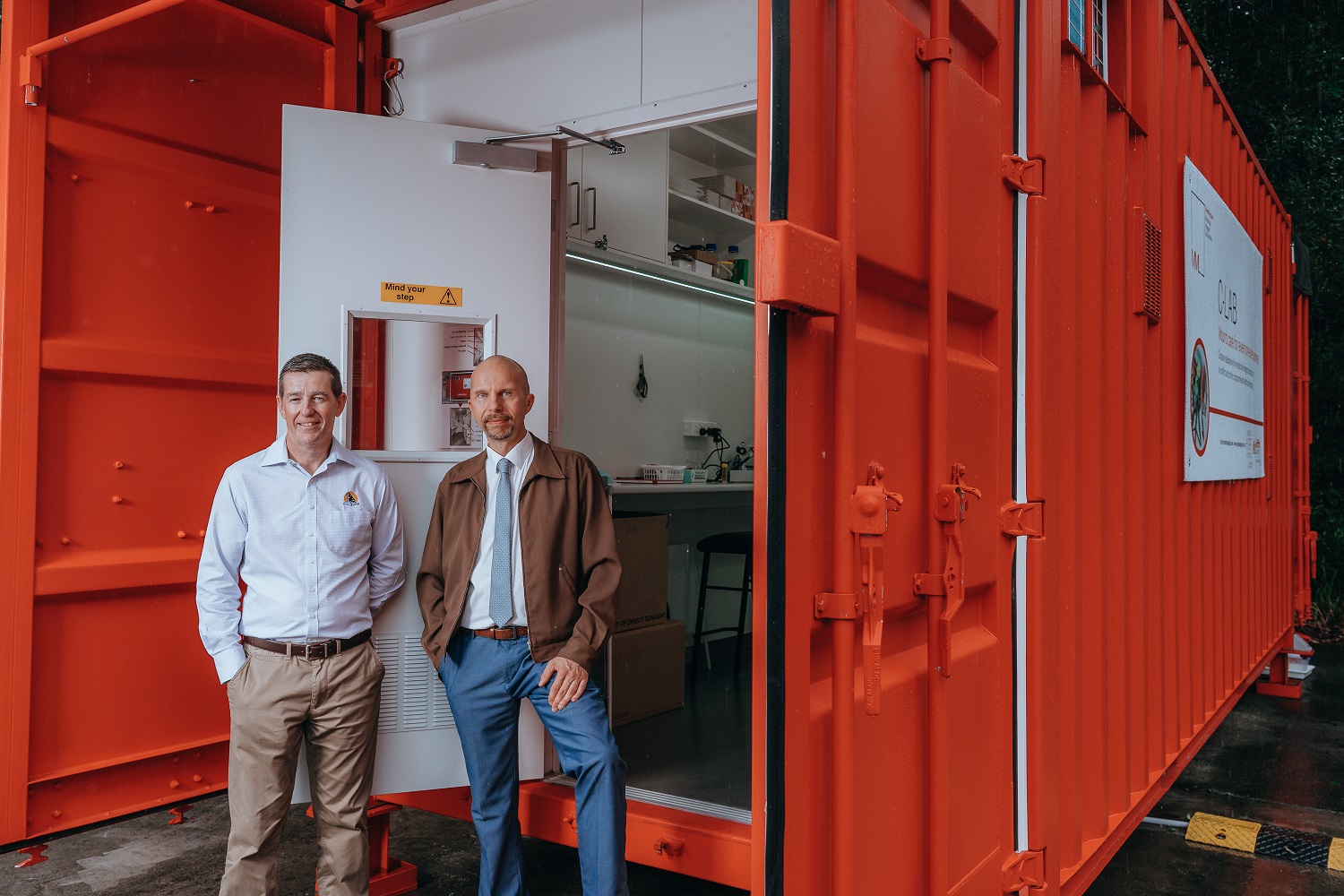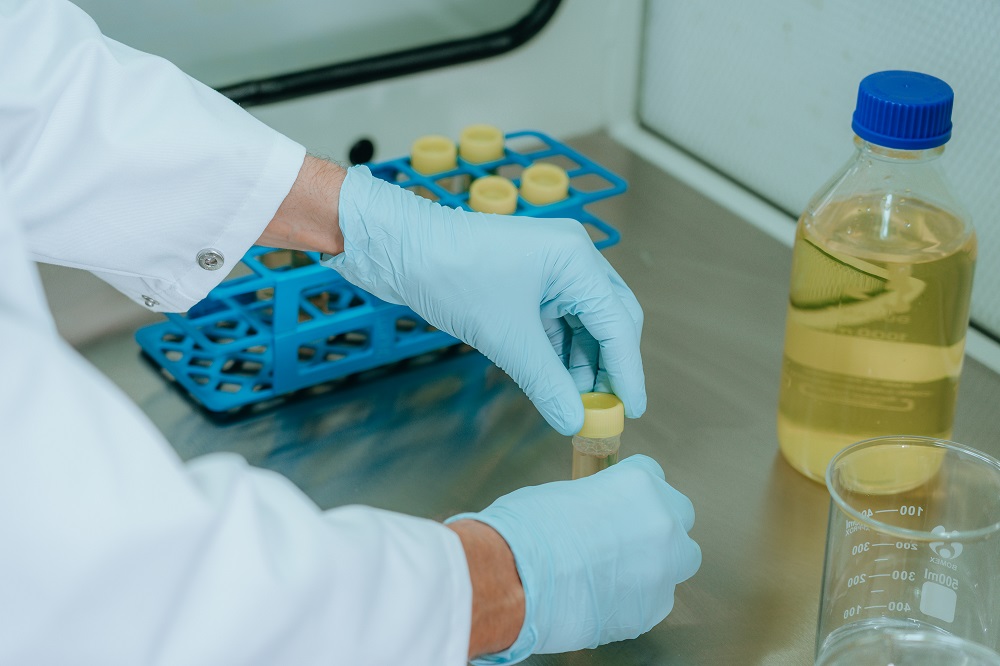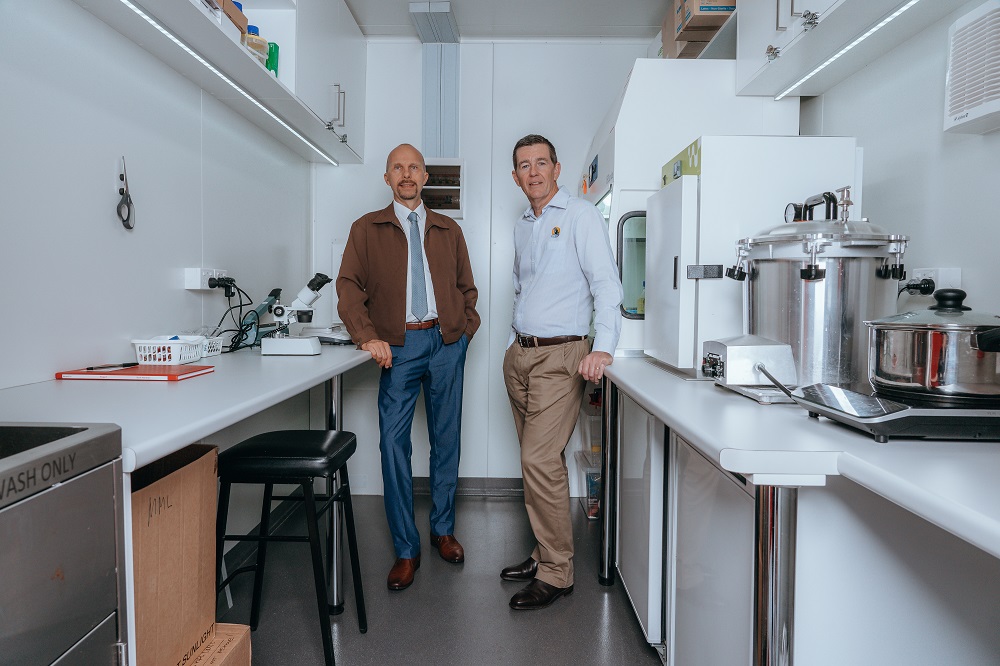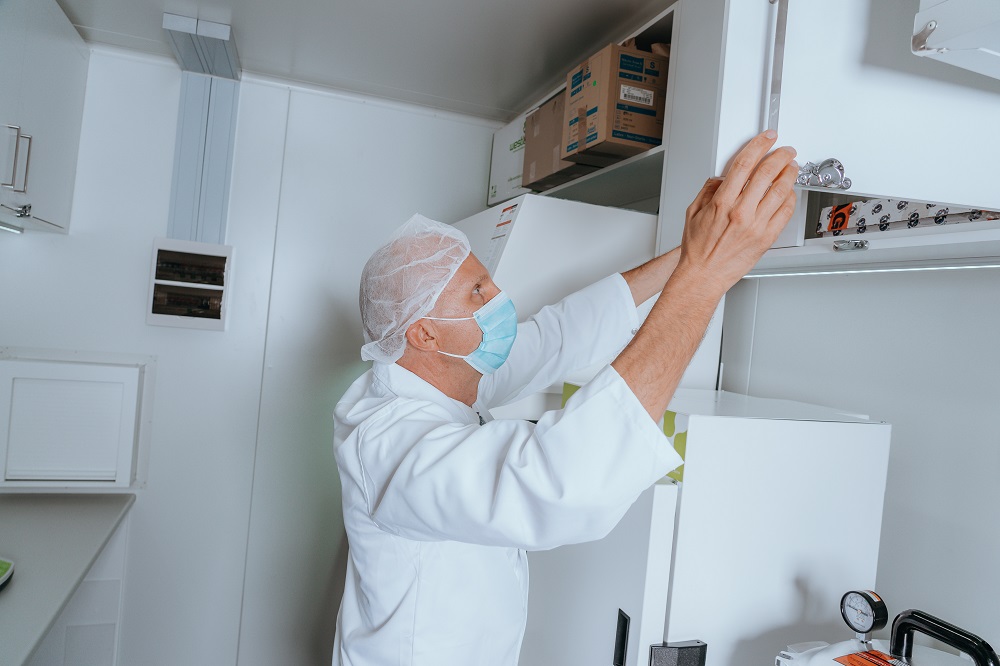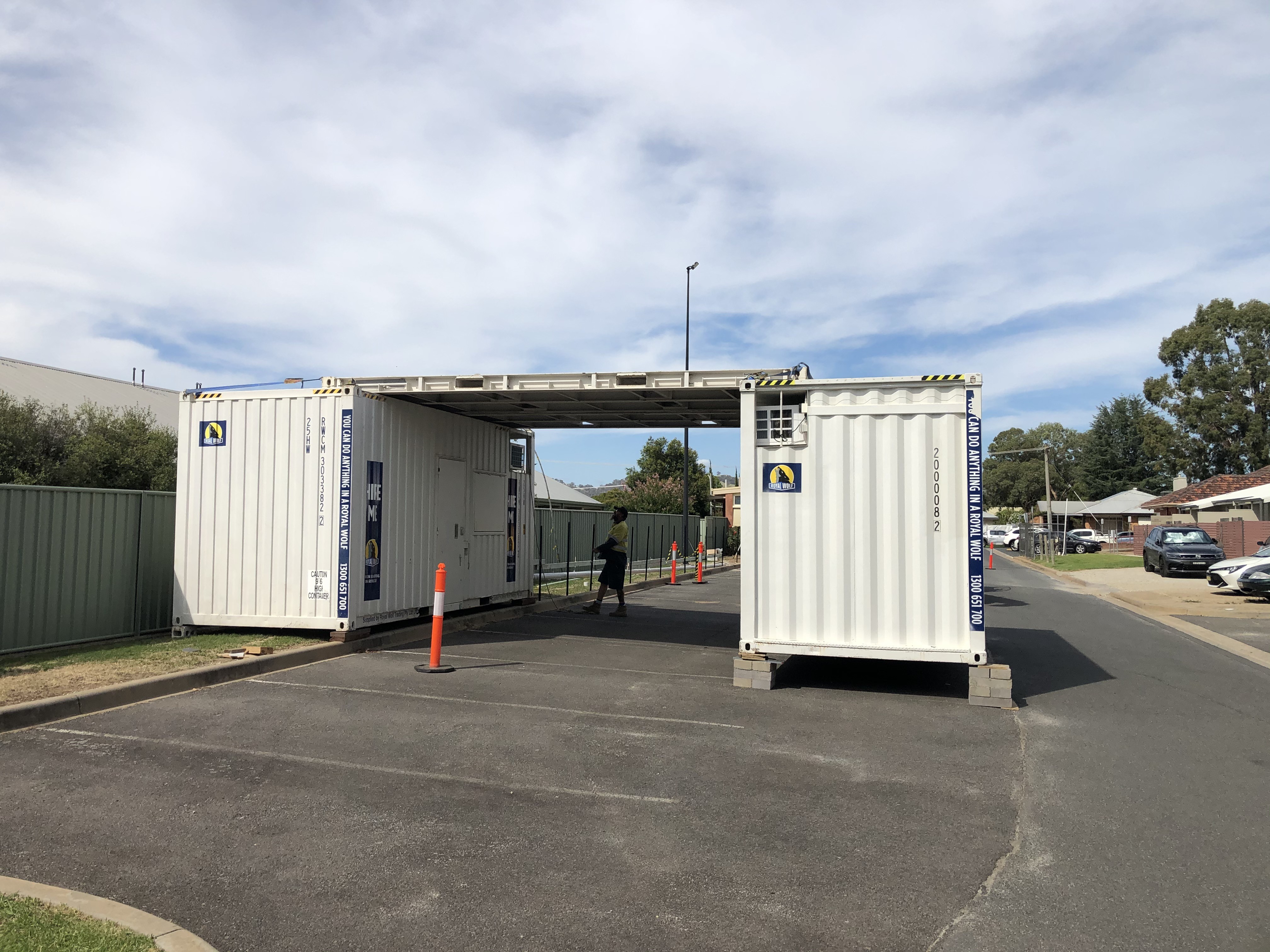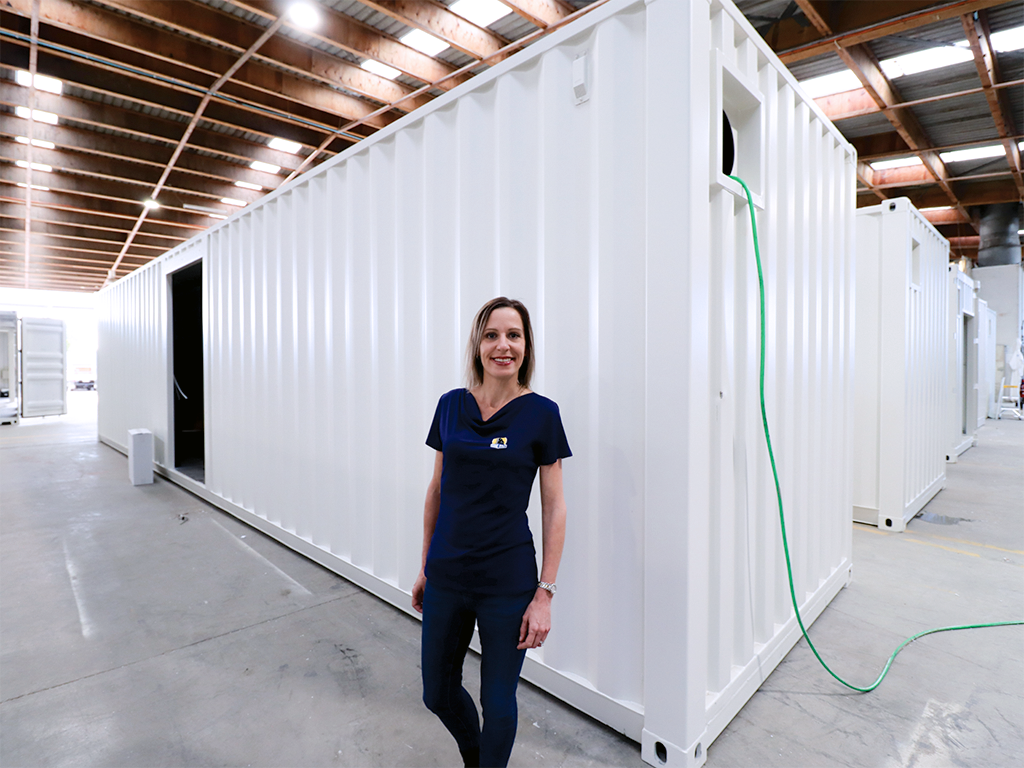Royal Wolf’s shipping container solution helps develop the production and use of medicinal maggots.
It’s not every day that Royal Wolf gets the opportunity to create a shipping container solution that has the potential to save lives.
When Dr Frank Stadler, Research Fellow and Team Leader at MedMagLabs at Griffith University’s School of Medicine, got in touch with the Royal Wolf team, it was clear this was a project that had the potential to make a difference.
Dr Stadler had a bold vision – one he hoped could revolutionise wound care in disaster and conflict situations around the world. He was looking for a scalable solution that could be deployed to any location when needed.
“My idea was a container, which would house an insectary to breed the flies, and a laboratory that would meet the required standards and provide clean-room facilities, so that we could produce very effective and high-quality medicinal maggots in the field anywhere we can put it,” says Dr Stadler.
“Having a shipping container, which is very mobile, converted into a laboratory makes sense. It’s a solution where we can produce a large quantity of medicinal maggots close to the point of [patient] care.”
“Frank approached us about building a containerised lab when he and his team were putting a proposal together to get some funding for the project. He had a fixed budget in mind, but he also had a list of what he needed in the container. Our challenge was to try and fit them all in and come in on budget,” says Warner Anderson, Royal Wolf’s Business Development Executive, Modifications.
The potential to scale up the project in the future was also a critical consideration for the containerised solution.
“The scalable solutions in the medical space are really important because often the most difficult places to treat people are the remote ones,” says Dale Garson, Royal Wolf’s General Manager, Engineering.
“When we decided to look into a container laboratory, we looked around the region. We selected Royal Wolf because the expertise is there. When we shared our concept and our brief with them, we were even more convinced that we had chosen the right partner,” says Dr Stadler. “It was very apparent, very quickly that they know what they're doing.”
Given the scientific and medical nature of the work that would need to be completed in the space, Dr Stadler had a number of requirements that the Royal Wolf team needed to consider when designing the container, including two separate areas to avoid cross contamination.
“We installed a couple of air conditioners, and we split the container into two rooms. Both rooms were air conditioned, but at the same time, we needed to vent the container as well. We had to try and work out a balance between air conditioning and air circulation inside and heat,” says Warner.
The container also needed to be elevated in order to keep ants out.
“That was one important feature because otherwise the fly colonies would very easily be prey to ants overnight,” says Dr Stadler.
There’s nothing better than exceeding our client’s expectations and delivering a solution that ticks every box. Better yet, there’s a feel-good element to this project, too.
“There's a certain amount of pride attached to this project,” says Warner. “Working with an organisation that is doing this sort of stuff for the greater good and helping out in that area… We feel proud.”
“The Royal Wolf team is always up for a challenge,” says Neil Littlewood, Royal Wolf’s Chief Executive Officer. “This project highlights our ability to create tailored shipping container solutions that make a real difference.”
___________________________________________________________________________
The development and construction of the mobile container laboratory was made possible with a CA$250,000 grant to conduct maggot therapy supply chain research from Creating Hope in Conflict: A Humanitarian Grand Challenge, a partnership of the U.S. Agency for International Development (USAID), the U.K. Foreign, Commonwealth & Development Office (FCDO), and the Ministry of Foreign Affairs of the Netherlands, with support from Grand Challenges Canada.

